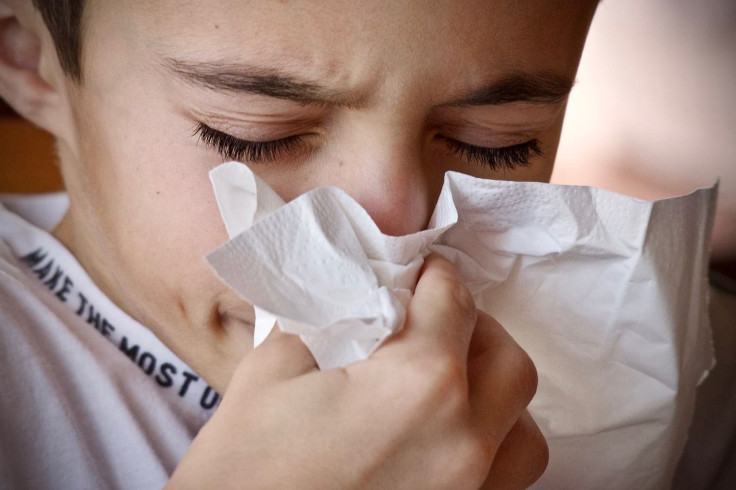Do You Have These New COVID Symptoms? 9 Illness Signs Added To UK Official List
The U.K.’s National Health Service has added nine new COVID-19 symptoms to its official list, expanding the signs of illness for the virus amid a recent surge in cases.
The nine new symptoms include sore throat, headache, diarrhea, shortness of breath, feeling tired or exhausted, aching body, blocked or runny nose, loss of appetite, and feeling or being sick.
The new symptoms come just days after the government ended its free universal COVID-19 testing program and are being added with caution that they “are very similar” to symptoms for colds and flus, the health agency said.
The NHS has also listed fever, new continuous cough, and the loss of sense of smell or taste as COVID-19 symptoms for almost two years since the start of the pandemic.
The Centers for Disease Control and Prevention and the World Health Organization have had a much longer list of COVID-19 symptoms from the onset of the pandemic.
The CDC’s COVID symptoms list includes fever or chills, cough, shortness or breath or difficulty breathing, fatigue, muscle or body aches, headache, new loss of taste or smell, sore throat, congestion or runny nose, nausea or vomiting, and diarrhea.
The nine added COVID symptoms also emerged as the U.K. sees record COVID infections, with nearly 5 million people currently estimated to have the virus, according to Bloomberg. This equates to about 1 in 13 people in the U.K. infected with COVID-19, the BBC reported.
The NHS has urged people to stay home and avoid others if they have COVID symptoms and a high temperature or if their symptoms are bad enough that they are not well enough to go to work.
Tim Spector, a professor at King’s College London and the lead scientist of the Zoe COVID-19 symptom tracker app, has campaigned for the expansion of COVID symptoms in the U.K.
He wrote in Twitter post on Sunday, “NHS official Main symptoms of coronavirus (COVID-19) have finally changed after 2 years of lobbying and Zoe app user input - hurrah!”
NHS official Main symptoms of coronavirus (COVID-19) have finally changed after 2 years of lobbying and Zoe app user input - hurrah ! Pity they have the order wrong - but it’s a start and could help reduce infections _ thanks ZOE loggers! https://t.co/E8zu3sSAPk
— Tim Spector MD (Prof) (@timspector) April 3, 2022

© Copyright IBTimes 2025. All rights reserved.




















